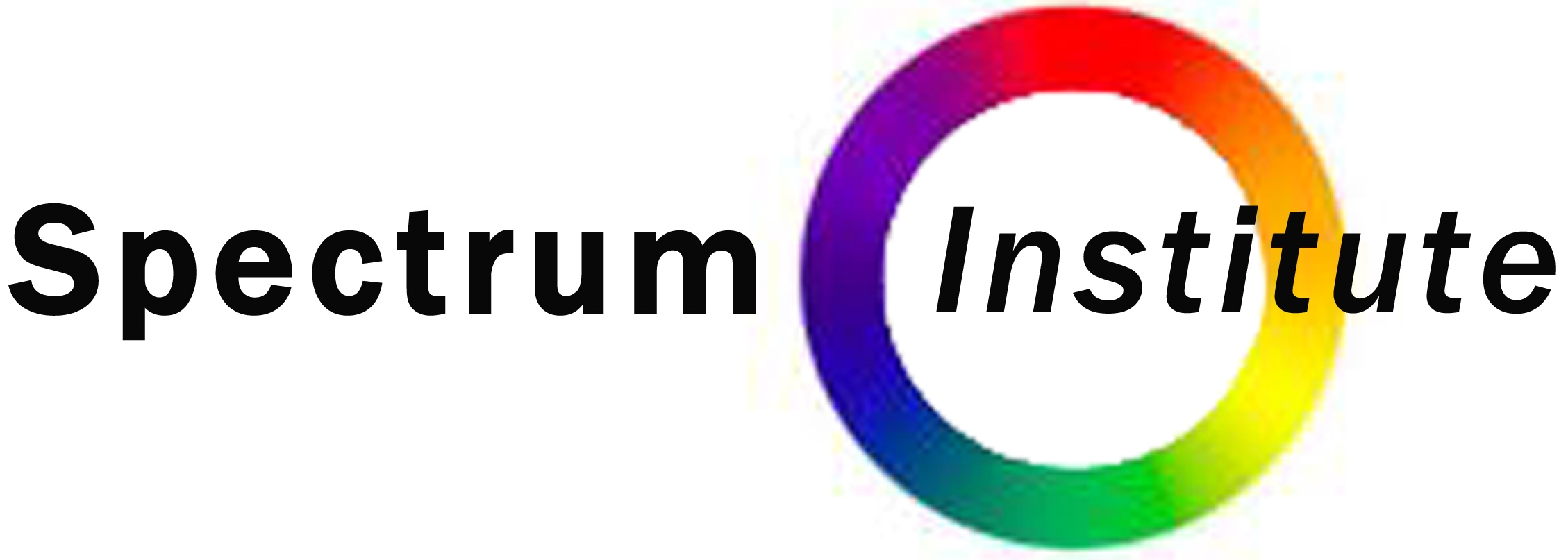|
|
|||
|
On March 16, 2016, Spectrum Institute submitted a report to the Washington Supreme Court. (http://www.spectruminstitute.org/gap/) Along with the report were a set of exhibits that provided detailed support for the findings and recommendations in the report. The report, titled The Justice Gap, highlighted deficiencies in the state's guardianship system, particularly in the legal services component involving attorneys appointed to represent respondents in guardianship proceedings. Many of these deficiencies were identified as violations of federal law, especially of Title II of the Americans with Disabilities Act. A set of ADA-compliant performance and training standards were supplied to the court. (http://www.spectruminstitute.org/white-paper/) Now that more than 18 months have passed, and no significant changes have occurred to correct these deficiencies, Spectrum Institute has filed a formal complaint with the Supreme Court pursuant to Title II regulations. Section 35.107 requires public entities with more than 50 employees to have a grievance procedure by which to process complaints of ADA violations. An informational copy of the complaint has been sent to the Disability Rights Section of the Civil Rights Division of the Department of Justice. Among the supporting documents filed with the complaint is an essay suggesting that the Supreme Court should review a new administrative law rule on ADA accommodation. The administrative rule could serve as a guide to the court in crafting a court rule on the appointment of counsel in guardianship proceedings. Such an appointment may be a necessary ADA accommodation in order to give people with serious cognitive a communication disabilities access to justice in these proceedings. The court's own Access to Justice Board has supported the appointment of counsel or a "suitable representative" as an ADA accommodation in administrative hearings. The Washington WINGS group, created by the Supreme Court to study ways to improve the state's guardianship system, has been researching the issue of mandatory appointment of counsel. A sub-committee issued a report in early 2017. The report failed to take a position on a requirement that an advocacy attorney be appointed to represent guardianship respondents in each case. Instead, the report presented options for a larger policy committee to consider. No position has yet been taken by Washington WINGS on this issue. A dissent was filed by one member explaining that mandatory appointment of counsel is the only position that would be consistent with the requirements of federal due process and the meaningful access to services requirements of the Americans with Disabilities Act. By winding down its activities without taking a position on the right to counsel in guardianship proceedings, Washington WINGS has answered the question posed in an essay sent to it last year. Washington WINGS has tacitly sided with the status quo of many guardianship respondents not having a legal advocate and therefore not receiving access to justice. Although the national WINGS organization has joined with the American Bar Association in supporting the appointment of counsel for guardianship respondents, the Washington Wings group has tabled the issue. As a result, the Washington Supreme Court must address the matter without a recommendation from its own advisory committee. |
|||
|
Title II Regulation on ADA Complaints |
Supreme Court's ADA Obligations |
Supreme Court's Statutory Authority |
ABA/WINGS Action Tool |
|
As legal director of Spectrum Institute, Coleman has worked closely with Dr. Nora J. Baladerian on issues involving abuse and disability. He is the primary author of “The First Report: Victims and Their Families Speak Out” – an analysis of the 2012 Survey on Abuse of People with Disabilities, which is the largest national survey on abuse and disability ever conducted in the United States. For the past few years, Coleman has directed the Disability and Guardianship Project of Spectrum Institute. Starting his focus in California, Coleman’s advocacy for guardianship reform has broadened to become a national cause. Coleman, Baladerian, and a team of supporters converged on the nation’s capital in June of this year, attending a conference on guardianship reform, meeting with lawyers at the Department of Justice about the applicability of the Americans with Disabilities Act to guardianship proceedings, and seeking support for guardianship reform from members of Congress. Coleman’s advocacy efforts have gained him awards from The Arc of California and the international organization known as TASH. |
|||
|
More about the
activities of Spectrum Institute |
|||

 Throughout his 43 years as a civil rights
attorney, Thomas F. Coleman has advocated for a variety of causes and
minority populations, including cases and projects promoting justice and
equal rights for people with intellectual and developmental disabilities.
Throughout his 43 years as a civil rights
attorney, Thomas F. Coleman has advocated for a variety of causes and
minority populations, including cases and projects promoting justice and
equal rights for people with intellectual and developmental disabilities.